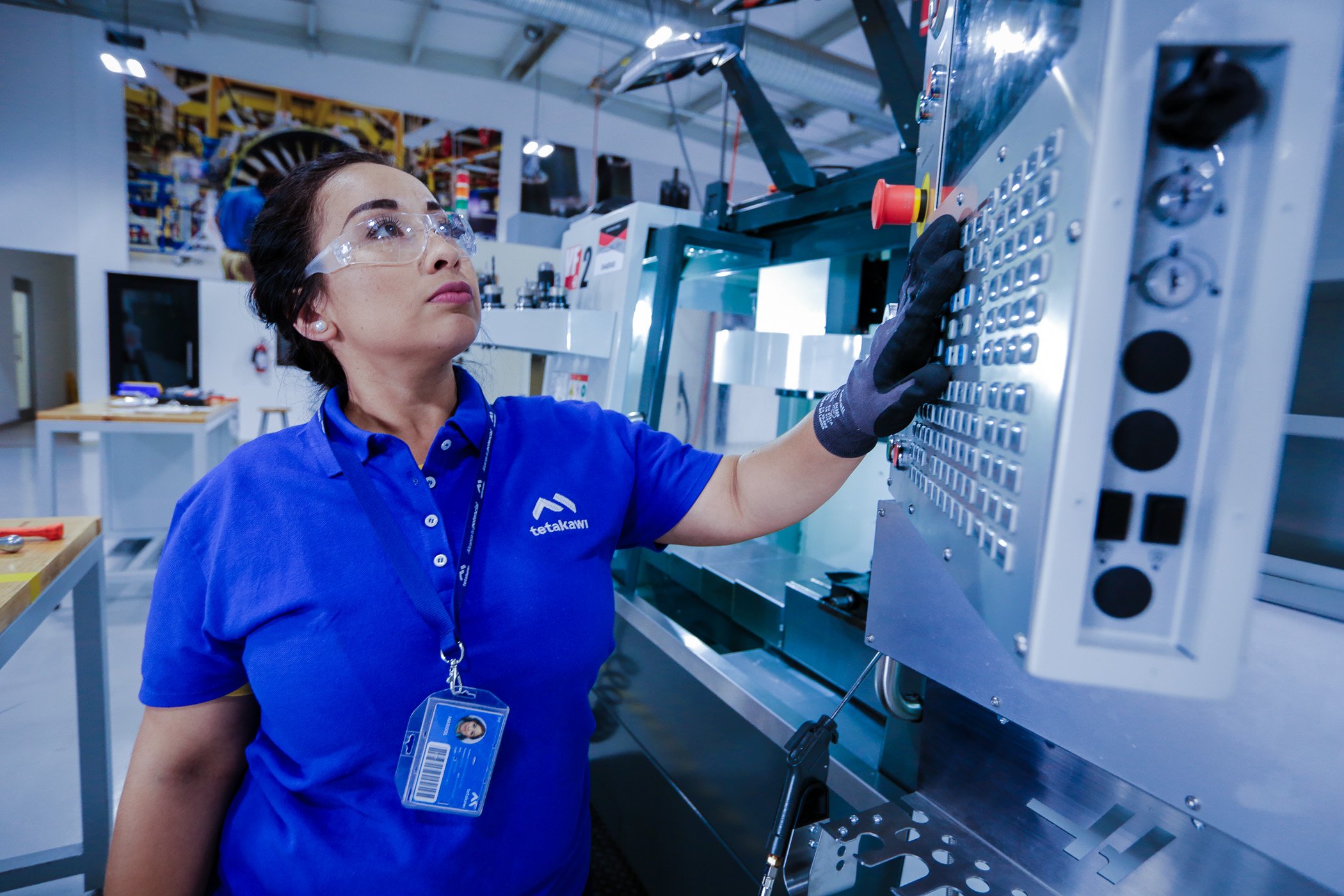From diagnostics equipment and medical instruments to implants and medical sensors, demand for all types of medical devices is growing fast. So, too, is the demand for workforce and infrastructure to support growth in this essential sector.
As of 2023, the medical device market was valued at more than $536 billion, but experts expect the market to reach closer to $800 billion by 2030. Yet keeping pace with market demand isn’t the only challenge medical device manufacturers must address. There’s also a need to keep up with evolving technology, which requires medical equipment manufacturers to lower production costs to invest in research and development. These manufacturers must also account for supply chain challenges, including the need for shipping redundancy and greater visibility into partners’ processes. Above all else, manufacturers must find ways to rein in costs that are challenging every sector within the healthcare industry.
Mexico has long been a solution for manufacturers looking for lower costs and available labor. Those companies that recognize that factory location can give them a keen competitive edge will want to consider Mazatlán. This up-and-coming manufacturing hub is well-positioned to support competitive medical device OEMs and their suppliers.
Below are five ways Mazatlán can support medical equipment manufacturers ready to expand into Mexico.
1. Reasonable Costs
In the competitive landscape of medical device manufacturing, companies are perpetually in pursuit of locations that offer not just strategic advantages but also economic viability. While Tijuana has been a frontrunner in this industry, its rapid industrialization has led to a significant increase in operational costs. This shift has prompted forward-thinking businesses to cast their gaze toward Mazatlán, a city that is quickly becoming a beacon of cost-effective manufacturing within Mexico. Here's why this Pacific Coast city is catching the eye of industry leaders looking for sustainable growth without the hefty price tag.
Tijuana's proximity to the life sciences hub of San Diego has historically been a major draw, fostering a dense network of suppliers and a skilled workforce adept in medical device production. However, the city's success has escalated wages and real estate costs, presenting a challenge for manufacturers who are grappling with the imperative to control expenses.
Mazatlán is emerging as a viable solution to this challenge. The city is not only investing in infrastructure to bolster connectivity to northern suppliers and markets but also ensuring that manufacturers can maintain the delivery speeds they have come to expect in Tijuana. The cost of living in Mazatlán is more than 20% lower than in Tijuana, which translates to more reasonable wages that align with the local economy without diminishing workforce quality.
Moreover, the real estate market in Mazatlán is proving to be more accessible. With Tijuana's industrial parks experiencing a 14% leap in leasing prices in 2023, pushing rates beyond $.80 per square meter per month, Mazatlán offers a breath of fresh air. The city's industrial space, bolstered by private investments in new Industrial Parks like Tetakawi's 98-acre Mazatlán Manufacturing Community, provides Class A facilities at more competitive rates.
For medical device manufacturers, Mazatlán represents a strategic pivot to a location that harmonizes cost-efficiency with high operational standards. The city's burgeoning reputation as a manufacturing hub, coupled with its economic benefits, positions it as an attractive alternative for companies aiming to expand their production footprint in Mexico while keeping costs in check.
2. Shipping Redundancy
The paramount importance of supply chain resilience has been brought into sharp focus by recent global events, particularly the medical supply shortages during the COVID-19 pandemic. This has underscored the necessity for regional distribution to safeguard access to essential medical supplies. In response, there's been a strategic shift towards localizing medical device manufacturing within North America.
Mazatlán stands out as a strategic node in this reconfigured supply chain landscape. Its geographic positioning offers manufacturers a unique logistical advantage. With the availability of international highways, railways, and the deep-sea Pacific port, Mazatlán provides a multifaceted transportation network. This logistical flexibility is crucial for manufacturers, offering them the ability to adapt to changing conditions by selecting the most reliable and cost-effective shipping routes. The city's commitment to shipping redundancy ensures that companies can maintain a steady flow of goods to the market, reinforcing the stability of the supply chain—a critical component in the medical device industry.
3. Available Labor
The global surge in demand for medical devices has created a labor market where the need for skilled manufacturing workers outstrips supply in many regions. The United States has found a valuable partner in Mexico, which has become a critical contributor to the medical device manufacturing sector by providing a skilled labor force that complements U.S.-based R&D jobs.
Mazatlán, with its stable and growing population, is particularly well-positioned to meet the labor demands of this industry. Between 2010 and 2020, the area experienced a 14% population increase, predominantly among the youth, suggesting a sustainable labor pool for the future. This demographic trend is a boon for manufacturers who are considering establishing or expanding their operations in the region.
In contrast, cities like Tijuana and Ciudad Juárez are currently grappling with significant labor shortages in the manufacturing sector, with Tijuana alone reporting over 10,000 job vacancies. This labor deficit has led to a high turnover rate along the Mexican border, with some reports indicating rates as high as 16% per month, imposing substantial costs on companies—approximately $930 for every worker who leaves for another job.
Mazatlán offers a different narrative. The city is not only rich in available labor but is also actively investing in educational and training programs to further enhance the skill set of its workforce. Higher education institutions in the vicinity are producing graduates in key fields such as engineering, data science, computer programming, and chemistry and are eager to collaborate with local industries to tailor their curricula to the market's needs.
For medical equipment manufacturers, Mazatlán presents an opportunity to tap into a pool of workers who may currently be engaged in lower-paying or less secure jobs. The region's commitment to workforce development, combined with a lower cost of living, positions Mazatlán as a strategic location for companies aiming to maintain a stable, skilled workforce while mitigating the high turnover rates and associated costs seen in traditional manufacturing hubs along the border.
4. Complete Quality Control
In the high-stakes arena of medical device manufacturing, where quality control is not just regulatory but a matter of life and death, the need for impeccable oversight is non-negotiable. Ensuring that all components remain sterile and free from contamination is crucial for patient safety. Additionally, the industry must be vigilant against the infiltration of counterfeit materials, a significant and growing threat within the supply chain.
In this context, the manufacturing landscape in Mexico offers a distinct advantage. Unlike the common practice in many Asian countries, where production and quality control responsibilities are often outsourced, manufacturers in Mexico tend to keep these processes in-house. This is particularly true under the IMMEX program, which allows for tax benefits while manufacturers retain full control over their operations, including the vital quality control functions.
Mazatlán enhances this advantage with the presence of shelter service providers like Tetakawi, which offers a comprehensive suite of administrative services. These providers enable manufacturers to concentrate on the core aspects of production and quality assurance by handling administrative and compliance burdens. This partnership allows manufacturers to focus on their essential function—producing high-quality medical devices—while experts manage human resources, import/export logistics, legal compliance, and environmental regulations.
The collaboration with shelter services in Mazatlán thus presents a compelling proposition for medical device manufacturers: the ability to maintain stringent quality control and efficient production processes, supported by a framework that ensures all administrative functions are expertly managed. This integrated approach to manufacturing support is another reason why Mazatlán is becoming an increasingly attractive destination for companies looking to optimize their operations in the medical device sector.
5. Strategic Port Access
Mazatlán's strategic position on the Pacific Coast of Mexico offers a significant logistical advantage, particularly for medical device manufacturers that rely on components sourced from Asia. The city's access to a deep-sea port facilitates direct maritime connections to Asian markets, which is a critical asset for companies that need to import high-quality materials and components for their manufacturing processes.
The port access in Mazatlán allows for more streamlined and cost-effective importation compared to other routes that may require longer transit times and additional handling. By reducing the complexity and potential delays associated with multi-stop shipping, manufacturers can achieve a more efficient supply chain with better control over inventory levels and production planning.
Moreover, the port's capabilities for handling specialized cargo are essential for the medical device industry, where components often require careful handling and storage conditions. The ability to receive shipments directly from Asia via sea not only reduces logistical costs but also minimizes the risk of damage or contamination that could occur with more complex, multi-leg shipping arrangements.
In summary, Mazatlán's port access is a vital link for medical device manufacturers, providing a direct and efficient gateway for the importation of essential components from Asian suppliers. This connectivity is yet another factor that enhances Mazatlán's appeal as a strategic location for companies looking to optimize their global supply chain operations.
Find a partner who can help you compete
Because Mazatlán is an emerging manufacturing location, companies ready to benefit from this site’s advantages should consider working with a partner that knows the local area. Tetakawi has more than three decades of experience in pairing manufacturers with real estate and a workforce in Mexico. Our Manufacturing Community in Mazatlán makes it easy to launch operations. Plus, our advisory services simplify the process of complying with regulations governing operational start-up, export, and medical device manufacturing in Mexico.
If you’re ready to begin manufacturing medical devices in Mexico, then Tetakawi can help. Contact us to learn more about how to launch your operations in Mazatlán.
Subscribe
Sign up and stay informed with tips, updates, and best practices for manufacturing in Mexico.






